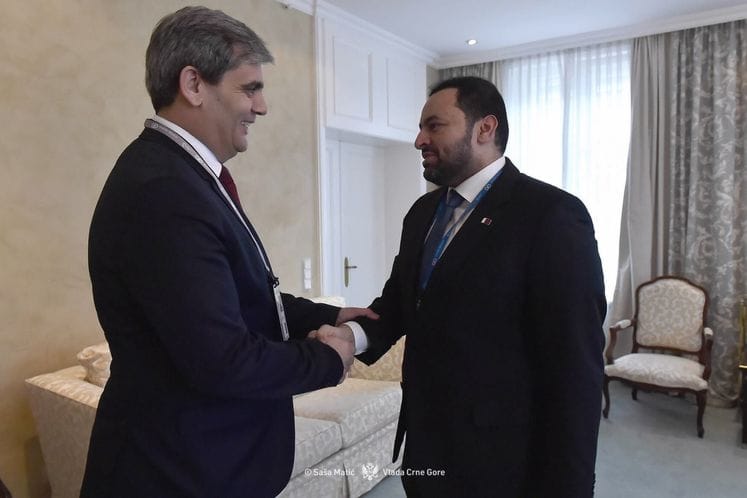- Government of Montenegro
The future of the region lies in the EU, intensify...
The future of the region lies in the EU, intensifying reforms is crucial

On the second day of the Munich Security Conference, Deputy Prime Minister and Minister of Foreign Affairs Ervin Ibrahimović participated in a series of panel discussions addressing current global and regional crises, the strengthening of the transatlantic partnership, the role of Europe and the EU in global affairs, as well as the situation in Ukraine and the Middle East conflict.
A meeting of Western Balkans leaders was also held, focusing on the region’s European perspective and its path toward EU membership. The keynote speakers were Marta Kos, European Commissioner for Enlargement, and Ambassador Wolfgang Ischinger, President of the Foundation Council of the Munich Security Conference Foundation. Alongside Minister Ibrahimović, the discussion included high-level representatives from the region, including Vjosa Osmani, President of the Republic of Kosovo; Željka Cvijanović, Chair of the Presidency of Bosnia and Herzegovina; Denis Bećirović, Member of the Presidency of Bosnia and Herzegovina; Edi Rama, Prime Minister of Albania; Timčo Mucunski, Minister of Foreign Affairs of North Macedonia; Tanja Miščević, Minister of European Integration of Serbia; and Peter Grk, Secretary-General of the Bled Strategic Forum.
The discussion reaffirmed the European Commission’s strong support for the enlargement process, emphasizing that EU membership is a key factor in ensuring the stability and development of the region. It was assessed that enlargement would significantly contribute to long-term peace, economic growth, and the region’s resilience to geopolitical challenges.
Montenegro was recognized as the frontrunner in European integration among Western Balkan countries, having made the most progress in accession negotiations. It was noted that, with the effective implementation of reforms, Montenegro has a realistic chance of becoming the next EU member by 2028. In this context, the need for a credible and consistent EU enlargement policy was underscored, providing candidate countries with clear guidance and enabling a gradual accession process based on individual merit.
On the sidelines of the conference, Minister Ibrahimović met with Commissioner Marta Kos. He reiterated Montenegro’s full commitment to its European path and stressed the importance of accelerating the integration process for the Western Balkans. Commissioner Kos acknowledged Montenegro’s visible progress and emphasized the need for further intensification of reforms to achieve EU membership as soon as possible.
During the second day of the Munich Security Conference, Minister Ibrahimović also met with Minister of State at the Ministry of Foreign Affairs of the State of Qatar Mohammed bin Abdulaziz bin Saleh al-Khulaifi. Both parties recognized their mutual interest in strengthening political dialogue and enhancing bilateral cooperation, particularly in the fields of economy, tourism, agriculture, and renewable energy. They also discussed intensifying contacts and collaboration between the foreign ministries of Montenegro and Qatar.
Additionally, Minister Ibrahimović held brief discussions with his counterparts—Slovenian Foreign Minister Tanja Fajon, Croatian Foreign Minister Gordan Grlić Radman, and Bosnia and Herzegovina’s Foreign Minister Elmedin Konaković.
By participating in the Munich Security Conference, Minister Ibrahimović reaffirmed Montenegro’s strong commitment to European and Euro-Atlantic values, the strengthening of stability and cooperation in the Western Balkans, and proactive contribution to global security and stability.

